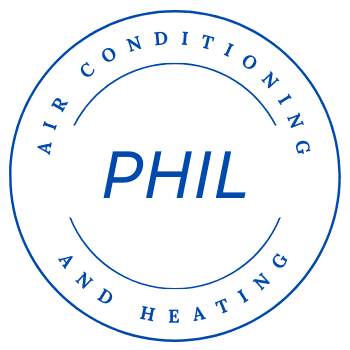Why Isn’t My Air Conditioner Cooling?
During the scorching heat of summer, a malfunctioning air conditioner can quickly turn comfort into discomfort. If you find yourself in a situation where your air conditioner isn’t cooling as it should, several common issues might be at play. Understanding these potential causes can help you diagnose the problem and determine whether you need to call a professional for assistance.
- Thermostat Settings:
One of the first things to check when your air conditioner isn’t cooling is the thermostat settings. Ensure that it’s set to “cool” rather than “fan” or “heat.” Sometimes, the thermostat may also have a programming issue or a dead battery, preventing it from communicating effectively with the AC unit.
- Air Filter Blockage:
A clogged air filter can restrict airflow, reducing the efficiency of your air conditioner. Over time, dust, dirt, and debris accumulate in the filter, inhibiting the flow of cool air into your home. It’s recommended to check and replace the air filter regularly, ideally every one to three months, depending on usage.
- Refrigerant Levels:
Refrigerant is crucial for the cooling process in your air conditioner. If there’s a leak or if the refrigerant levels are low, your AC unit won’t be able to produce cool air effectively. Signs of low refrigerant levels include warm air blowing from the vents and ice buildup on the evaporator coils. Handling refrigerant requires specialized knowledge and equipment, so it’s best left to HVAC professionals.
- Dirty Condenser Coils:
Condenser coils on the outdoor unit of your air conditioner can become dirty or covered with debris over time. This buildup prevents the unit from dissipating heat effectively, reducing its cooling capacity. Regular maintenance, including cleaning the condenser coils, can help maintain the efficiency of your AC system.
- Electrical Issues:
Electrical problems such as a tripped circuit breaker, a blown fuse, or faulty wiring can also cause your air conditioner to stop cooling. Check your electrical panel to see if any breakers have tripped and inspect the fuses in your AC unit. If you suspect an electrical issue, it’s essential to contact a qualified electrician or HVAC technician for repairs.
- Insufficient Insulation or Air Leaks:
Poor insulation or air leaks in your home can lead to cooled air escaping and warm air entering, making it difficult for your air conditioner to maintain a comfortable temperature. Inspect windows, doors, and ductwork for leaks and ensure that your home is adequately insulated to maximize energy efficiency.
- Mechanical Wear and Tear:
Like any mechanical system, air conditioners can experience wear and tear over time. Components such as the compressor, fan motor, or capacitors may wear out or malfunction, leading to reduced cooling performance. Regular maintenance by an HVAC professional can help identify and address potential issues before they escalate.
When your air conditioner isn’t cooling properly, diagnosing the underlying cause is essential for restoring comfort to your home. While some issues can be resolved with simple troubleshooting steps like checking thermostat settings or replacing air filters, others may require professional intervention.
Regular maintenance and prompt repairs can help ensure that your air conditioner operates efficiently and effectively, keeping you cool and comfortable throughout the summer months.
Wether your AC just stopped working and you need it fixed fast, or you want to set up regular maintenence, Phil Air Conditioning and Heating is just a phone call away!
